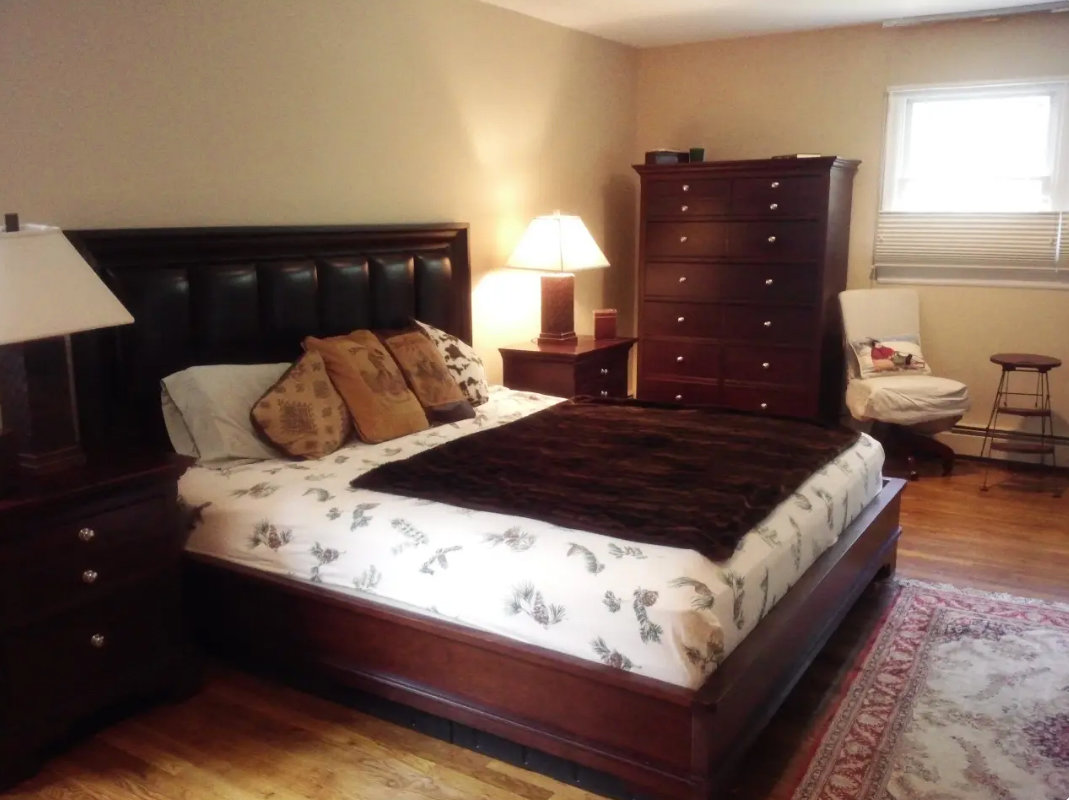'Level the playing field'
Glen Cove looks to regulate Airbnb
As Airbnb, the online service that helps homeowners rent rooms to travelers, expands on Long Island, the City of Glen Cove is hoping to regulate how it and other short-term lodging-rental businesses operate in the city. In June, City Councilwoman Marsha Silverman said she was concerned about the issue, and proposed passing legislation to limit how often homeowners could rent out rooms in a given year.
Silverman said that while the drafting of the legislation was left to City Attorney Charles McQuair, she had yet to hear an update on its progress until residents raised the issue at a City Council meeting on Aug. 27. There are about 10 Airbnb rental sites now operating in Glen Cove, and residents said that growth in the industry could negatively impact some neighborhoods in the city.
“This issue has been growing in Glen Cove,” Mayor Timothy Tenke said, “and we are looking to pass legislation on it.”
Silverman explained that because people tend to rent Air-bnb rooms to vacationers, those visitors are not invested in the community and can bring noise, parking and trash problems to otherwise peaceful neighborhoods. She said she also worried that if more Airbnb rentals were to spring up in Glen Cove, they would draw customers away from hotels and other lodging businesses in the city and on the North Shore. The fact that traditional businesses must have licenses and other certifications that Airbnbs don’t, Silverman said, puts an “unfair burden” on local lodging businesses.
Bill Dougherty, the general manager of the Mansion at Glen Cove, said that if Air-bnb lodgings are allowed in the city, they should have to meet the same standards as his hotel. Because Airbnbs don’t have to provide the same services as regular hotels or meet the same safety requirements, he added, they can offer lower prices that cost hotels customers and can impact the local economy. The Mansion employs residents of Glen Cove and Locust Valley.
“It’s awesome that the city is doing something about this, and the county should do the same,” Dougherty said. “They need to level the playing field and have Airbnbs follow the same rules as us.”
Concerns about Airbnb’s effects on a community’s economy and quality of life aren’t new to the North Shore: Glen Head residents lodged similar complaints in January. Members of the Estates Civic Association appealed to the Town of Oyster Bay’s Code Enforcement Bureau about an Airbnb that operated about 100 feet from North Shore High School. At the time, Oyster Bay Town Councilman Louis Imbroto, who chairs the town’s Quality of Life Task Force, said he was working on legislation focusing on Airbnb. Marta Kane, a spokeswoman for Imbroto, said the research portion of the legislation was being finalized.
At the Glen Cove City Council meeting on Aug. 27, McQuair told residents that he was working with code enforcement officers to draft legislation that would regulate short-term rental businesses like Airbnb. He added that he had heard about additional services being provided at Airbnb’s sites aside from lodging, which would make them commercial businesses.
“Our city code already doesn’t allow for commercial spaces in residential areas,” Glen Cove resident Nancy Hawkins said. “We have a code for it already. It just needs to be enforced.”
Silverman said she would like to see the city pass a law similar to one passed in Sea Cliff in 2017, which allows room rentals for up to 30 days as long as the homeowner obtains a permit from the village clerk. The permit can be issued only twice a year.
“We don’t want to be overly restrictive on how homeowners can use their property,” Silverman said. “People should be able to use their homes and make some money, but it can’t become a revolving-door business. That’s not an appropriate use of a residential area.”

 44.0°,
Mostly Cloudy
44.0°,
Mostly Cloudy 




